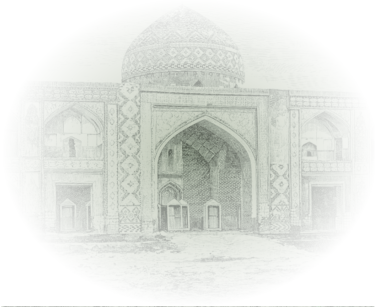Western Azerbaijan is one of the oldest and most geographically diverse areas of Azerbaijan. In the past, it was located along important caravan routes that connected the northern and southern parts of Azerbaijan, as well as the entire Caucasus and the Near East. Currently, it is bordered by Georgia to the north, Azerbaijan Republic to the east and southeast, Turkey to the west, and Iran to the south and southeast, covering an area of 29,800 square kilometers. While this land is now recognized as Armenia, its territory has historical significance as the ancient Turkic-Oghuz homeland and the historical land of Azerbaijan. Numerous cultural artifacts in this region, such as ancient settlements, burial mounds, fortresses, palaces, defensive remnants, caravanserais, bridges, horse and ram statues, mosques, and shrines confirm this fact.
Historical sources indicate that during the czarist period, Armenians were intentionally and systematically relocated en masse here to create an ethnic foothold for the Russian Empire. This policy began with Tsar Peter I and continued more seriously during the Soviet Bolshevik era. Due to the Soviet government's pro-Armenian policy, the territories of Western Azerbaijan were unlawfully given entirely to Armenians, resulting in the establishment of the current Armenian state over these Azerbaijani lands. However, no historical source confirms the Armenian presence here or the existence of any Armenian state in history. In other words, all historical sources provide credible evidence that the Western Azerbaijani territories rightfully belong to Azerbaijan.
However, as a result of the chauvinistic and ethnic cleansing policies of the Armenians, the Azerbaijani traces in Western Azerbaijan have been scattered and obliterated. The indigenous inhabitants of this land, the Azerbaijanis, have been subjected to multiple genocides by the Armenians, and a policy of erasing their traces has been implemented. The policy of erasing traces, systematically and purposefully, that began in the 1830s, gained new momentum later on. Thousands of local residents were killed, and Azerbaijani toponyms were replaced with fabricated Armenian ones through official decisions. Finally, after the escalation of the historical Nagorno-Karabakh conflict between Armenia and Azerbaijan in 1988, Azerbaijanis living in these areas were forcibly expelled from their ancestral lands through military force, becoming victims of the Armenian policy of ethnic cleansing.
Since the restoration of our independence, the Azerbaijani Army launched a counter-offensive along the entire front on September 27, 2020, with the goal of putting an end to Armenia's aggression against Azerbaijan, curbing the combat activities of the Armenian armed forces, and ensuring the safety of civilian populations. The Azerbaijani Army began liberating the territories that were occupied by Armenia during the First Nagorno-Karabakh War in the early 1990s. The war, known as the "Patriotic War" lasted for 44 days and ended in victory for Azerbaijan under the leadership of the President of the Republic of Azerbaijan, the Victorious Supreme Commander Ilham Aliyev, who demonstrated the strength of our army.
Emerging victorious in the Patriotic War and successfully achieving the great return to Karabakh and Eastern Zangazur, Azerbaijan's next historical objective has been to restore the violated rights of Western Azerbaijanis and repatriate them to their ancestral lands. In this regard, the President of the Republic of Azerbaijan, Mr. Ilham Aliyev, during a meeting with a group of visitors from Western Azerbaijan on December 24, 2022 emphasized that in the future, our compatriots from Western Azerbaijan, along with their relatives, children, and descendants, will return to the historical land of Western Azerbaijan.
Inspired by President Ilham Aliyev's "Concept of Return" proposal, the "Virtual Western Azerbaijan" portal, supported by the Heydar Aliyev Foundation, encapsulates encyclopedic information about the ancient Oghuz-Turk homeland of Western Azerbaijan and it aims to provide visitors with comprehensive and scholarly information incorporating historical and scientific significance related to this region.
Inspired by President Ilham Aliyev's "Concept of Return" proposal, the "Virtual Western Azerbaijan" platform, developed by the Initiatives and Projects Center (TLM) with the support of the "Regional Development" Public Union, encapsulates encyclopedic information about the ancient Oghuz-Turk homeland of Western Azerbaijan and aims to provide visitors with comprehensive and scholarly information incorporating historical and scientific significance related to this region.
Ilham Aliyev
The issue of Western Azerbaijan in the speeches of National Leader Heydar Aliyev and President Ilham Aliyev
